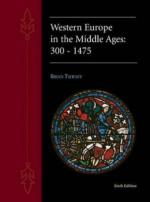|
This section contains 1,065 words (approx. 4 pages at 300 words per page) |

|
Definition. The term feudalism refers to an economic, political, and social system that prevailed in Europe from about the ninth century to the fifteenth century. With the chronic absence of effective centralized government during the Middle Ages, kings and local rulers granted land and provided protection to lesser nobles known as vassals. In return, these vassals swore oaths of loyalty and military service to their lords. Peasants known as serfs were bound to the land and were subject to the will of their lords.
European Medieval Feudalism. European medieval feudalism has become the foremost example of an interrelationship between a social class system and an economy. Having been influenced, however, by previous cultures and their economies, especially those that combined agricultural and exchange bases, the medieval economic environment cannot be understood through exclusive examination of the feudal system. The backdrop...
|
This section contains 1,065 words (approx. 4 pages at 300 words per page) |

|




